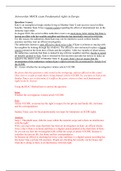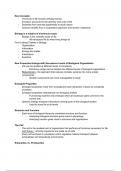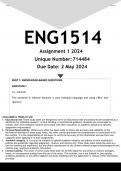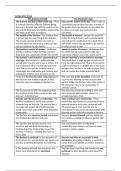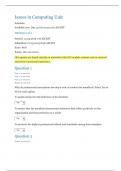Tentamen (uitwerkingen)
Antwoorden oefen tentamen Fundamental Rights in Europe (Mock exam)
- Instelling
- Vrije Universiteit Amsterdam (VU)
Aan de hand van de voorgeschreven literatuur, IRAC-methode en exacte beantwoording van de professor. Vraag en antwoord.
[Meer zien]
